Table of Contents
- 🎯 Too Long; Didn’t Read
- The Money Situation
- Space Changes Everything
- Where You Can Actually Stay
- What's Included
- Human Interaction (Or Lack Of It)
- Rules and Flexibility
- Safety and Security
- Cleanliness Standards
- The Breakfast Factor
- When Hotels Win
- When Airbnb Wins
- The Hybrid Approach
- Hidden Factors
- What The Numbers Actually Show
- The Verdict That Isn't Really a Verdict
- ❓FAQ❓
- What effect do loyalty programs have on value when comparing hotels and Airbnbs?
- Can you use credit card protection or travel insurance for Airbnb stays in the same manner that you would for a hotel?
- Apart from taxes and resort fees, are there any other hidden expenditures in hotels that guests should be aware of?
Airbnb vs Hotel: How to Choose the Right Stay
🎯 Too Long; Didn’t Read
Your hotel vs. Airbnb decision hinges entirely on the trip you’re planning.
Go with a hotel when you’re on a short business trip, traveling solo, or just need things to be simple. You get 24/7 front desk service, predictable cleanliness, and a prime spot downtown. It’s efficiency over square footage.
Pick an Airbnb for bigger groups where you can split the bill, family vacations, or longer stays. The draw is more space, a real kitchen, and a vibe that feels less touristy, more local. Just be ready for potential surprises—hidden cleaning fees, inconsistent quality, and a lot more homework before you book.
Hotels deliver a standardized experience; Airbnbs offer a more personal one. The smart move isn’t loyalty to one. It’s about picking the right tool for each journey.
This whole where-to-stay question? It keeps popping up. Travelers go back and forth on forums, Facebook groups, Reddit threads. Some only book hotels. Others are Airbnb devotees. Honestly, both work. What you pick should align with your travel style.
Let’s get into it, minus the buzzwords.
The Money Situation
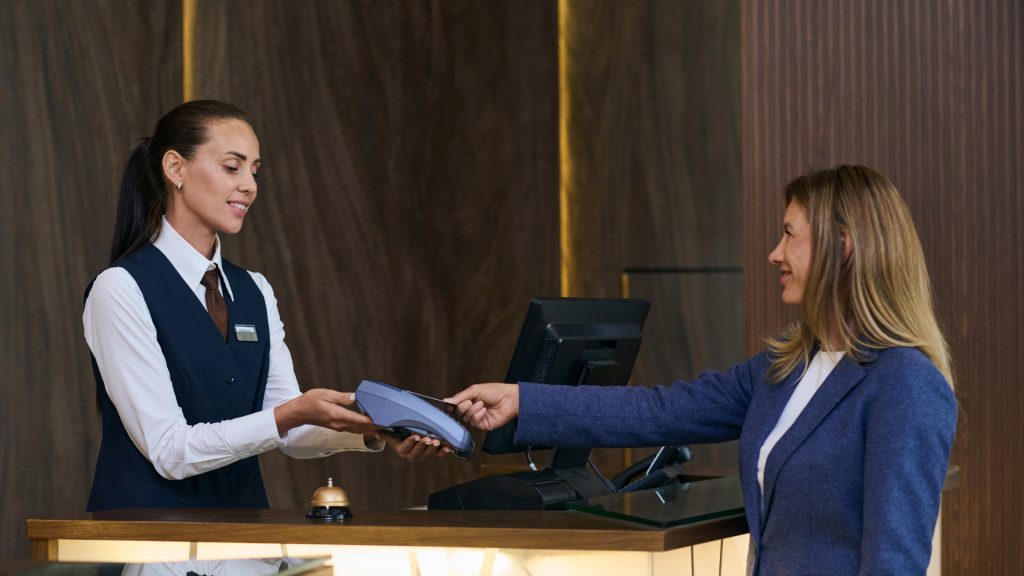
Hotels bill you for the room, each night. That’s the base cost. You see the price right away. Most places roll taxes into the final checkout total. But some add-ons pop up later, like resort fees or parking charges. Regardless, the pricing stays straightforward.
Airbnb works differently. You’ve got the nightly rate. Then cleaning fees—sometimes these hit $100 or more. Service fees pile on top, usually 14-16% of the subtotal. Some hosts add extra charges for additional guests. By the time you reach checkout, the price might be 30-40% higher than the initial listing showed.
For a solo traveler or a couple, a hotel usually wins on price for a night or two. But the math changes completely for longer trips or bigger groups. Split a four-bedroom Airbnb eight ways. The cost per person plummets. Booking multiple hotel rooms just can’t compete. Staying a week or more? Many Airbnb hosts slash their rates—a kind of discount hotels rarely touch.
But cost is only part of the story. True value is the real prize.
Space Changes Everything
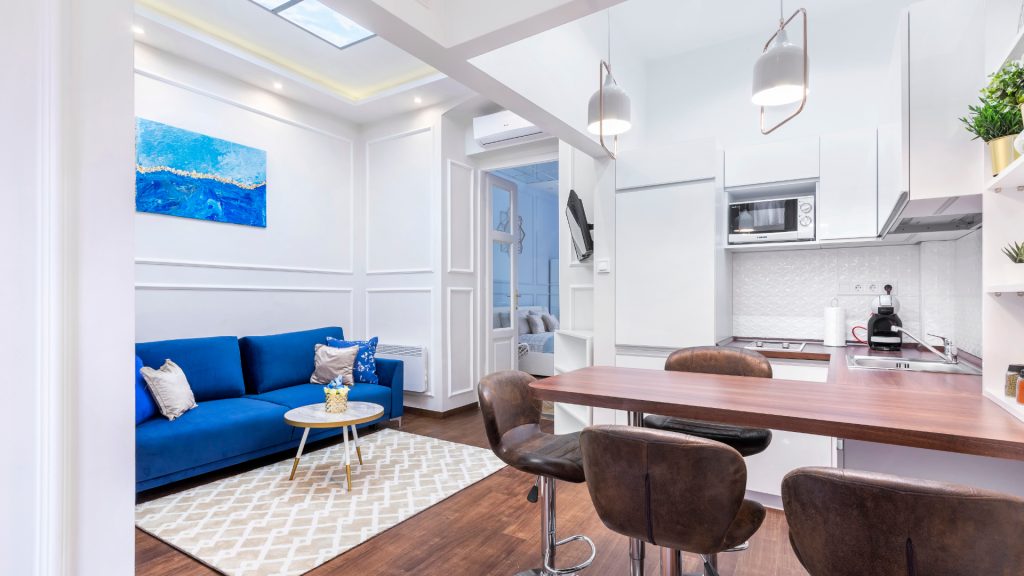
Hotels give you a room. Maybe 300-400 square feet if you’re lucky. One bathroom. Two beds or one king. A desk, a TV, a chair. That’s the formula.
Airbnbs run from studio apartments all the way to full houses. Picture landing a place with three bedrooms, two baths, a kitchen, living room, and backyard. Or, you might snag just a small room in a shared home, where everything’s communal.
On family trips or extended stays, space is a must. Kids need room to spread out. Parents crave breaks from non-stop togetherness. A kitchen means skipping restaurant meals constantly—saving cash and preserving your sanity.
Hotels feel cramped after day three. You’re living out of a suitcase. Your toiletries crowd the tiny bathroom counter. There’s nowhere to go except the bed or that one chair. Cabin fever sets in.
But space cuts both ways. That house you rented might be 15 minutes from anything interesting. You’ll need a car. Hotels cluster near tourist areas, restaurants, public transit. Location often beats square footage.
Where You Can Actually Stay
Hotels concentrate in city centers, near airports, along major highways, in tourist zones. Developers build them where infrastructure exists and demand runs high. This means convenience but limits options.
Airbnb operates in residential neighborhoods. Hunt down a mountain cottage. Find a bungalow right on the beach, or an apartment in a local area far from tourist-clogged hubs. The goal is to ditch the visitor experience. You live there.
This matters in expensive cities. Manhattan hotels cost $300-500 per night for basic rooms. An Airbnb in Brooklyn or Queens might run $120 and put you near better restaurants anyway. You’ll spend 30 minutes on the subway, but you save hundreds.
The flip side: some Airbnbs sit in inconvenient locations. That “charming cottage” might require a rental car and navigation skills. Research the actual location, not just the photos.
What’s Included

Hotels provide services. Someone cleans your room daily. Fresh towels appear. The bed gets made. There’s a front desk 24/7 if something breaks. Many include breakfast, a gym, a pool. Business centers, concierge services, luggage storage—these amenities come standard at decent hotels.
Airbnbs offer whatever the host decides to provide. Some stock the kitchen with basics—coffee, oil, salt, pepper. Others leave you nothing. You might get Netflix, or you might get basic cable. Towels could be plush and plentiful or thin and rationed.
The cleaning situation differs radically. Hotels clean daily unless you decline. Airbnbs stay dirty until you leave. That bathroom isn’t getting scrubbed mid-stay. Spill something on the floor? You’re dealing with it yourself.
But Airbnbs give you things hotels can’t. A washer and dryer matter on long trips. A full kitchen means cooking dinner, making coffee without a one-cup machine, and storing leftovers. Some hosts provide beach gear, bikes, board games, or local guidebooks.
Human Interaction (Or Lack Of It)

Hotels employ staff. You interact with the front desk, housekeepers, concierges, valets, restaurant servers. This provides security and convenience. Need restaurant recommendations? Ask the concierge. Locked out? The desk has spare keys. Shower broke? Maintenance comes up.
The interaction stays professional and distant. Nobody cares who you are. You’re a room number. Some travelers prefer this anonymity.
Airbnb hosts range from absent to intrusive. Some leave you alone entirely—you get a code for the lockbox, and you never meet them. Others want to chat, give you the neighborhood tour, share their life story. A few cross boundaries and text constantly or show up unannounced.
Check reviews to gauge host behavior. Phrases like “great communication” usually mean the host responds quickly to problems but doesn’t hover. “Very welcoming” might mean they want to be your friend.
Self-check-in Airbnbs feel like hotels without services. You let yourself in, you figure things out. Full-on hosted situations where you’re renting a room in someone’s home require social energy. You’re a guest in their space. Some travelers love this cultural exchange. Others find it exhausting.
Rules and Flexibility
Hotels have rules, but they’re standard. Check in after 3 PM, check out by 11 AM. Don’t smoke in the room. Don’t throw parties. Beyond that, you’re left alone. Need to check out at 6 AM for an early flight? No problem. Want to check in at midnight? The desk is staffed.
Airbnb rules vary wildly. Some hosts prohibit shoes indoors. Others ban cooking certain foods. Many charge extra for early check-in or late checkout, or refuse entirely. Check-in might require arriving during a specific two-hour window. Some hosts set quiet hours, limit guests, or ban alcohol.
The rules aren’t inherently bad, but they require attention. Miss a detail in the listing, and you might face problems. Show up with six people when the listing allows four? The host could cancel your reservation on the spot.
Hotels offer flexibility with housekeeping, luggage storage, and schedule changes. Airbnbs lock you into whatever the host offers. Need to store bags after checkout while you explore the city? Some hosts allow it. Others say no. Hotels handle this automatically.
Safety and Security
Hotels have security measures. Cameras in hallways, front desk verification, electronic key cards that expire. Staff patrol the property. Fire safety systems meet codes. If something goes wrong, help is downstairs.
Airbnbs exist in regular buildings or houses. Security depends entirely on the neighborhood and the host’s precautions. Some have cameras outside (though not allowed inside living spaces per Airbnb policy). Many have standard door locks and nothing else.
Hotels vet employees. Airbnb hosts are random individuals. Incidents happen—hidden cameras, hosts entering without permission, unsafe conditions. These cases make headlines because they’re shocking, but they’re statistically rare. Still, the risk exists in ways it doesn’t at established hotels.
Hotels also have insurance, corporate liability, and standardized safety protocols. If you get hurt in a hotel due to negligence, the company has deep pockets. Individual Airbnb hosts might not have adequate insurance. Airbnb offers some coverage, but the process of filing claims can be complex.
Solo travelers, especially women, often feel safer in hotels. There’s accountability, visibility, and staff presence. Airbnbs require more research and gut instinct about whether a listing feels legitimate.
Cleanliness Standards
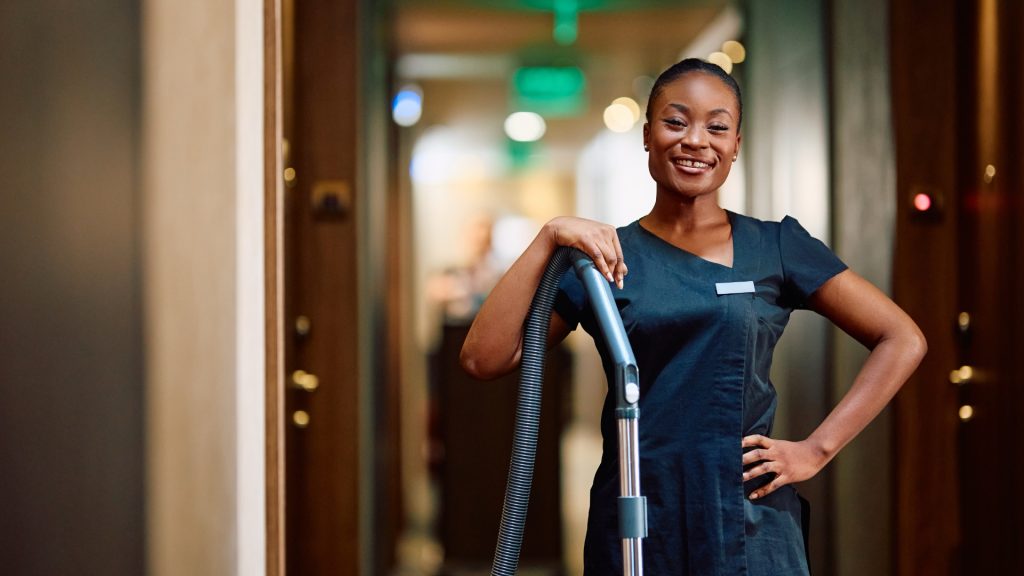
Hotels follow cleaning protocols. Corporate chains use checklists. Health inspectors visit. Standards exist, even if execution varies. You can see reviews across multiple platforms—TripAdvisor, Google, Yelp. Patterns emerge quickly if a property has cleanliness issues.
Cleaning standards at Airbnb are a total gamble. It hinges entirely on the host—or some random cleaner they found. You get hosts who are fanatical about it. Others just phone it in. There’s no way to be sure until you unlock the door.
Sure, you check the reviews. But those are stuck on Airbnb’s site, a closed loop. And hosts can clap back at critical reviews, which can feel like pressure to stay silent.
The pandemic turbocharged this cleanliness anxiety. Major hotel chains rolled out new “enhanced” cleaning rules, though consistency is still spotty. Airbnb responded with its own optional protocol. The catch? It’s self-certified. No inspector ever checks; there’s no official badge. You just have to take their word for it.
Many travelers pick Airbnbs for lower guest turnover. Think about a hotel room—it might see 365 different people in a year. Now, an Airbnb rented 100 nights annually? That means far fewer occupants. Seems solid, but this hinges entirely on the cleaning between bookings being done right.
The Breakfast Factor

Many hotels include breakfast. Continental spreads, hot buffets, or grab-and-go bags. This adds value and convenience. You wake up, eat, and start your day. No planning required.
Airbnbs rarely include food beyond occasional coffee and tea. You’re cooking or going out.
Want control? Be prepared to put in the work. Some folks love whipping up breakfast in their PJs way more than dealing with a hotel spread. For others, it’s a hassle they’d rather skip on vacation. Your call hinges on how you travel. Got picky kids? Cooking at your spot often works better. Business travelers? They’ll grab the hotel breakfast and bolt.
When Hotels Win
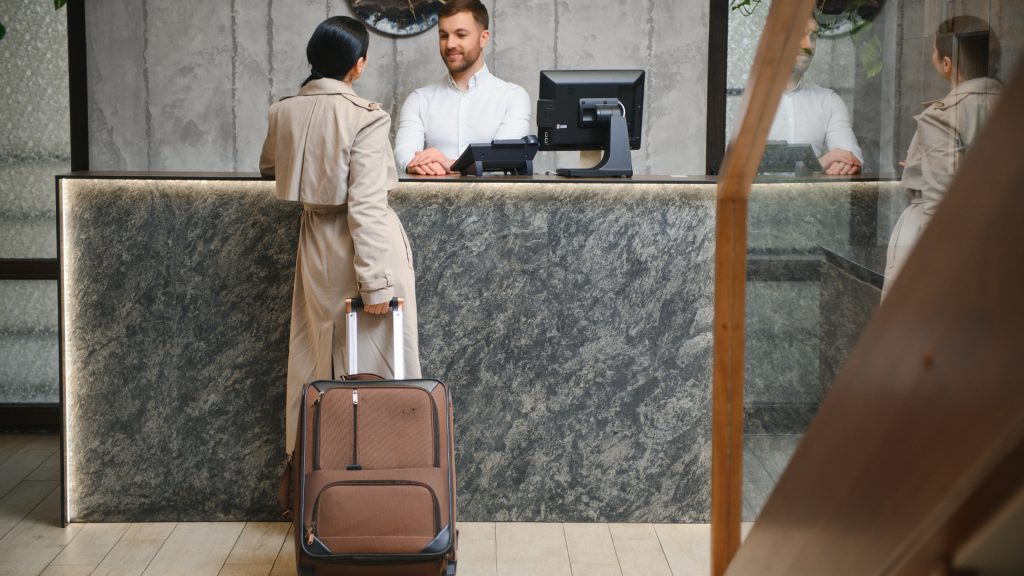
Hotels make sense for:
- Short trips of one or two nights. The per-night cost beats Airbnb once you factor in cleaning fees.
- Business travel. You need reliability, 24/7 services, and often loyalty points.
- City breaks where you’re rarely in the accommodation. Why pay for space you won’t use?
- Solo travelers who want security and don’t need a kitchen.
- People who value services—daily cleaning, front desk support, concierge help.
- Travelers who want to avoid variable quality. Chain hotels offer consistency.
- Those who book last-minute. Hotels have real-time inventory and instant confirmation.
When Airbnb Wins
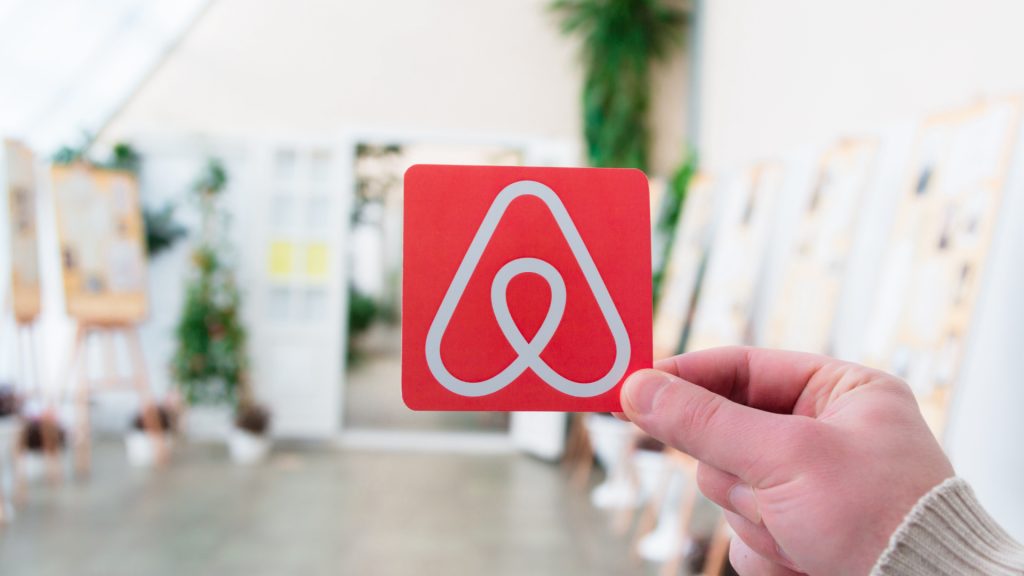
Airbnbs work better for:
- Groups splitting costs. The per-person price beats booking multiple hotel rooms.
- Families needing separate sleeping areas and a kitchen.
- Longer stays of a week or more. The space and amenities justify the setup fees.
- Travelers who want to live in residential neighborhoods.
- People who enjoy unique properties—treehouses, houseboats, historic homes.
- Those cooking meals to save money or accommodate dietary restrictions.
- Travelers who prefer privacy over services.
The Hybrid Approach
Smart travelers use both.
Cities for two nights? Book a hotel near the train station.
Week in the countryside? Rent a house on Airbnb.
Beach vacation with family? Airbnb.
Business trip with back-to-back meetings? Hotel near the conference center.
Each tool fits specific situations. The debate shouldn’t be either/or.
Hidden Factors
Communication matters more on Airbnb. Read messages carefully. Clarify questions before booking. Check response time in reviews. A host who takes 24 hours to answer questions will be equally slow when your WiFi stops working.
Hotels provide anonymity that Airbnb doesn’t. Your home address, phone number, and profile go to hosts. Some travelers dislike this lack of privacy.
Cancellation policies? They’re not consistent. Most hotels let you cancel for free up to 24-48 hours before you arrive. But Airbnb hosts decide their own rules—some refund fully if you bail a week out, others charge you the second you book. Always scan the fine print.
Loyalty programs matter to frequent travelers. Hotel points add up to free nights, status upgrades, and perks. Airbnb has no equivalent beyond occasional discounts.
What The Numbers Actually Show
Airbnb listings outnumber hotel rooms in many destinations. The platform offers more inventory and price diversity. You can find something for $30 or $3,000 per night.
Hotels maintain higher satisfaction rates for customer service.
When things go wrong, hotels fix problems faster. Airbnb’s support system gets criticized for being slow and host-biased.
Price comparisons depend heavily on location and season. Run real searches for your specific trip instead of trusting generalizations.
The Verdict That Isn’t Really a Verdict
Neither option is universally better. Hotels deliver reliability and services. Airbnbs offer space and local experiences. Your priorities determine the right choice.
Ask yourself: Do you want someone making your bed daily, or do you prefer doing laundry mid-trip? Do you value location over space? Will you cook, or will you eat out? Are you booking for two people or eight? Staying two nights or two weeks?
The answers point you toward the right accommodation type. Stop trying to pick a side in some fake war between hotels and Airbnbs. Use hotels when they make sense. Use Airbnbs when they fit better. Sometimes you’ll book wrong and regret it. That’s travel. You learn and adjust.
The tourism industry has more options now than ever. Take advantage of both.
❓FAQ❓
What effect do loyalty programs have on value when comparing hotels and Airbnbs?
Hotel loyalty programs are straightforward. You earn points. Then you cash them in for free nights, room upgrades, or a later checkout. It’s a clear system. Airbnb’s approach is different—less standardized. Rewards are scattered. You might get an occasional platform-wide discount or a promotion that depends entirely on your specific host.
Can you use credit card protection or travel insurance for Airbnb stays in the same manner that you would for a hotel?
It’s tricky. Coverage totally depends on your provider. Hotels? Usually simpler. Airbnbs? You’re dealing with the host’s specific rules and whatever Airbnb has in place. So, always check what’s covered before you book.
Apart from taxes and resort fees, are there any other hidden expenditures in hotels that guests should be aware of?
Hotels are sneaky with extra charges. Beyond taxes and the infamous resort fee, other costs pop up. Think baggage storage. They might charge just to hold your bags. Parking? That daily rate adds up fast. Even the resort fee itself is a masterclass in hidden pricing. Then there’s the upsell for faster Wi-Fi or gym access. Always check the fine print.
